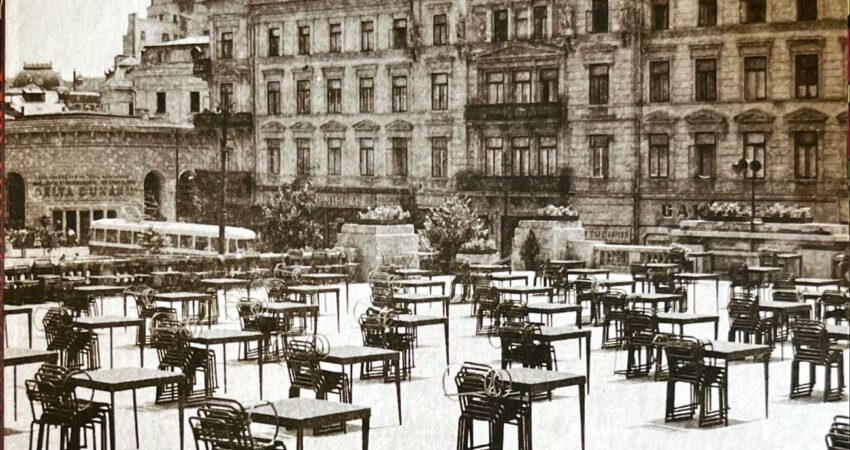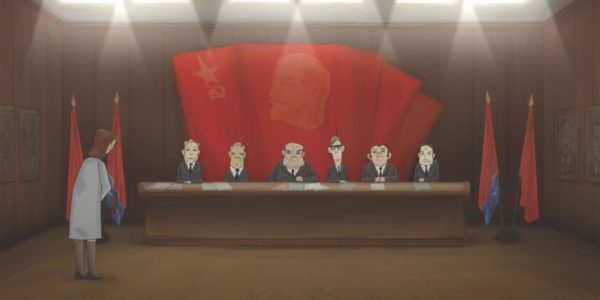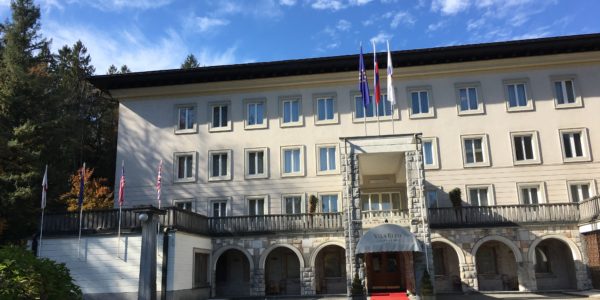Description of Nausicaa Marbe, Waiting for the West (Amsterdam, 2022) ISBN 9789044647280
Patrick van Schie
The Iron Curtain fell away more than thirty years ago. What happened behind that Curtain is history for most Western Europeans. It is different for those people in or from Eastern Europe who are old enough to have experienced life under communism. For them it is living history. And it would be good for Western Europeans to learn more about what life was like under a communist regime.
Journalist Nausicaa Marbe has lived in the Netherlands for forty years. However, she spent her childhood in Ceausescu’s Romania. A corner of the Soviet empire that usually received less attention in the Netherlands. Moreover, when he was in power, Ceausescu was received with all due respect by Western politicians, because he conducted a relatively idiosyncratic foreign policy. In 1968, for example, he refused to provide troops to join the Soviet Union in the suppression of the Prague Spring. For the Romanians themselves, it made his regime no less oppressive.
The restrictions of freedom in the Netherlands due to corona pandemics (2020-2021) brought memories of her youth in Romania back. Not that those restrictions of freedom were the same. Life in a democracy is incomparable to that in a communist dictatorship. The temporary restrictions related to the corona crisis are also incomparable with the hopelessness in Ceausescu’s Romania. Because nobody could foresee that the communist regime would fall in 1989. Marbe illustrates the difference, among other things, with the zeal with which the Dutch devoted themselves during the lockdowns to old or new hobbies and to the renovation of their homes. This shows that the Dutch had and have confidence in their future. The Romanians had no reason to. The country decayed. And why would you also build or renovate something that is not your property or that can be taken by the state at any time?
Born in 1963, Marbe experienced the late 1960s and 1970s as a child and teenager. Her parents were Social Democrats. That in no way meant that the communists cherished socialist brotherly love for it. After all, Social Democrats were no more tolerated by the Communists than any other dissenters. Nausicaa’s father had also been kicked out of the university when the communists came to power after World War II because he came from a wealthy background. The family’s assets were “nationalized”; stolen by the state. Her parents tried to live a life in Bucharest without being hindered too much by the communist rulers, as much as possible in such a dictatorship.
Marbe describes how all kinds of food could still be bought or enjoyed in restaurants until the mid-1970s. After that, such goods gradually disappeared and the products that disappeared did not return. In the early 1970s you could still experience in the market what was produced by… a market economy. You could still get ripe peaches and figs, creamy cheese and fresh walnuts. ‘You bought goodies in the market, in the state shops you bought privileges,’ she writes to indicate that in those state shops you could only get the official behind the counter to make an effort to be of service in those state shops to you by bribing.
In the long run, however, there was less and less to get, and the lines became more frequent and longer. Anyone who saw a line joined it without knowing what was actually being sold. The fact that there was a line had to be a sign that there was something for sale that couldn’t be found elsewhere. The food gradually became less varied and less tasty. The menus in the restaurants disappeared; you could only eat what the pot bought. The quality products still produced in Romania were destined for export. For example, good potatoes. The regime deemed the nearly rotten specimens good enough for the Romanians.
The material poverty, the lack and later even the hunger and the cold – because of a lack of fuel in the apartment buildings in winter the heating was not higher than 7 degrees Celsius – were not even the worst. The worst, of course, was that one could hardly trust anyone. And that anyone could just be arrested. When Marbe came to the West [who wants to read how that happened, read her book] she saw the big difference in the faces and posture of the citizens there: the self-consciousness of citizens who have nothing to fear against the timidity of those who do not know who to trust but know they are being spied on by the state.
As a young girl, Marbe saved pictures of Ceausescu, a man who was always on the front page of the newspaper and on billboards everywhere as well as on TV every day. Her parents let her do so because it would be dangerous to warn her openly, but she could tell by their attitude that they didn’t like her scrapbook. Later, when she was older and began to feel uncomfortable with the pictures of that ever-present strange man, she began to ask questions. Her parents locked the windows and doors and put the phone away in another room; after all, bugs could have been placed in it. She heard that this man, Ceausescu, was in power not because the people wanted him but because the Russians had forced communism on Romania.
One of Nausicaa’s questions to her parents was why the West did not come to liberate Romania and the other satellite states. She was told that the West would rather not burn their fingers on that. Yet the title of the book does not address this question or the answer. Her parents had long planned to bring their daughter to the West, so that she could at least live in freedom. This plan succeeded in 1982, when Nausicaa arrived in the Netherlands at the age of 19.
This has ensured that the writer herself did not have to experience the darkest years, the last years of the Ceausescu rule. Also, she and her parents have never been locked up as political prisoners. Marbe’s vivid account describes the life of a relatively average, albeit well-educated Romanian family under Communism until 1982. A family that did not follow the Communists but that tried to remain as inconspicuous as possible. Nausicaa often aptly describes what such a life looked like. For example, in the above-mentioned conversation in which she was initiated into the nature of the regime, her mother told her how the communists broke potential resistance: ‘by taking the most beautiful thing that binds people hostage, crushing their love and devotion, care and fidelity as if it were something pernicious. By turning family ties and friendships into minefields. All this so that anyone who longs for freedom and wants to do something with it, can see himself as a ticking time bomb, a permanent threat to his loved ones. […] When you know that you can ruin your child’s life with one word, you think a hundred times before you say something in a stubborn fit of resistance. Then you shut up.”





Follow Us!